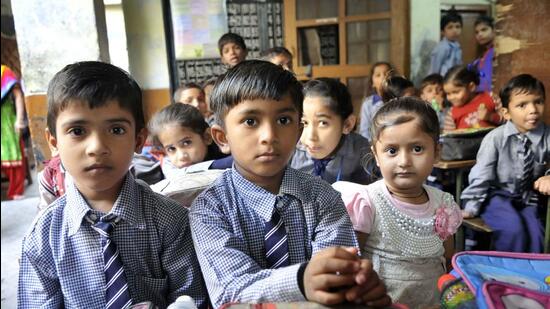How to reverse the deep learning loss
The government has embarked on a 100-day national reading campaign in elementary schools from January 1. The idea is to take full advantage of brain plasticity and reverse the losses in reading skills
The skill of reading is necessary for sustenance and ensuring a good quality of life. Therefore, for children to develop proficiency in any subject, reading is a non-negotiable skill.

Reading does not come easily to anyone. We are born with all the neurons (brain cells) that we will have all our lives. However, the number of synapses or connections formed later between brain cells determines the growth of abilities such as communication, reading, writing, painting and singing. Between 0-5/6 years, children develop almost one million new neural connections every second. These develop with the help of a child’s everyday experiences. Therefore, it is crucial that children are exposed to the right stimulation and interactions during this period.
The science of language development in a child through constant exposure to sounds and spoken words is perhaps as old as the Indian art of storytelling (katha). Though katha was originally meant to pass on ideas and beliefs to the next generations and preserve a community’s culture, it was also considered necessary for a child’s holistic growth and development. It is well established that the first attempt of a child at developing her language skills, and as a result, her reading skills, begins as soon as she starts responding to noise, words and cooing by crying or gurgling. The subsequent sounds that a child encounters, such as the sound of conversations and music, lays down the foundation for the child to acquire reading and writing skills.
To be able to read is to be able to imagine, be curious, become a critical thinker, develop better interpersonal skills, appreciate diversity, and be able to realise one’s full potential and productivity. The question is, therefore, what is the best way of acquiring this skill.
We are not born with reading-ready brains. The brain has to work hard to coordinate its areas of visual processing, sound-symbol connection, language comprehension, and speech production to be able to decode words and sentences. To further polish reading skills, it’s important to focus on repetitive reading practises, read beyond school textbooks and listen to rhymes, storytelling, and songs.
Cognitive neuroscientist Stanislas Dehaene said, “The brain’s existing neural networks are recycled for reading. Because of something called brain plasticity, during brain development a range of brain circuits can adapt for new uses. When we learn a new skill, such as reading, we recycle some of our old brain circuits.”
Research-based evidence indicates the following: If parents or family start(s) reading or story-telling early with their children, there is much more likelihood of developing stronger reading skills (James Hutton, MD, 2015); for most children at the elementary level, systematic instruction and repeated practice in classrooms is more than enough to “wire” their brains for reading. There will be children with dyslexia. However, the good news is that by focusing all teaching efforts specifically on phonological awareness and decoding skills, dyslexic children’s brains can be “trained” to read.
Although the pandemic has affected reading skills of students. But it is possible to recover lost ground by “deliberate practice” of reading and hearing a diverse set of texts, and “intense instruction” by the teacher on phonics, phonemic awareness, vocabulary, fluency in communication and comprehension. This, according to Cunningham & Rose; Eden; Hudson et al, (2016), will strengthen the brain circuitry of students and make them strong and successful readers.
The government has embarked on a 100-day national reading campaign in elementary schools from January 1. The idea is to take full advantage of brain plasticity and reverse the losses in reading skills by recycling the brain circuits wherever required through consistent, repeated, and diverse reading practises. The campaign was designed in a manner that every week, a learner is exposed to a new activity that is joyful and engaging, and can be undertaken at home or in school. If you join us in reading to children, or reading with them or helping them learn to read or become better readers, you are contributing to the larger cause of nation-building.
Anita Karwal is secretary, department of school education and literacy, ministry of education The views expressed are personal
All Access.
One Subscription.
Get 360° coverage—from daily headlines
to 100 year archives.



HT App & Website







